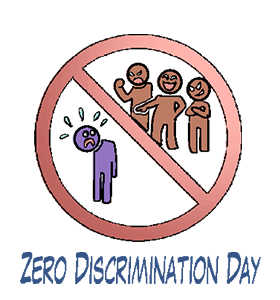Zero Discrimination Day
Zero Discrimination Day Quick Facts
| Hashtags | #ZeroDiscriminationDay |
|---|---|
| 2026 Date | March 1, 2026 |
| 2027 Date | March 1, 2027 |
2026 Holidays & Dates - US
| US & Common Holidays | ||
| Misc. & Int'l. Observancesℹ | ||
| Christian Holidays | ||
| Jewish Holidays | ||
| Muslim Holidays |
› | ||
